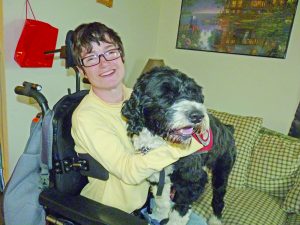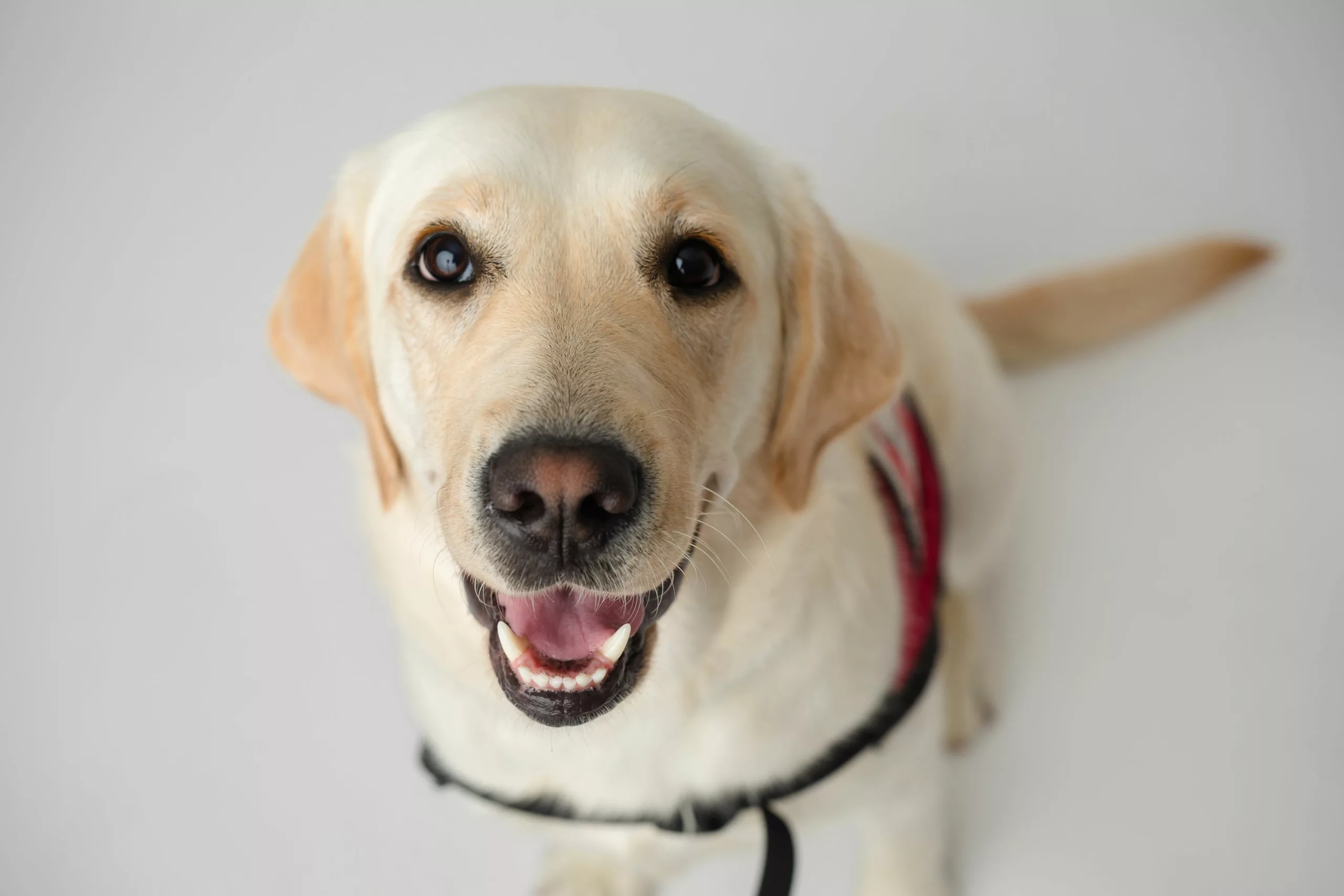Nicole Hintz and Mobility Assistance Dog Mac
Author: Hanna Kantor
It is the simplest things in life that we often take the most for granted. Now, when we think of these things it is the love of one’s family, the ability to drive, having a phone. However, the thing taken the most advantage of is the ability to move; the uninhibited use of our arms and legs. These things, that are so easy to overlook, are something many of us could not imagine living without. However, it is a reality in which 27-year-old Nicole Hintz of Marshall, Minn. lives every day.
A short six months after birth, Nicole contracted spastic cerebral palsy due to a combination of chickenpox and a very high fever, which causes stiffness in her muscles and can make movement extremely difficult and even impossible. For Nicole, this means she uses a power wheelchair for mobility and she’s weaker on the left side of her body. This lead her to undergo a full spinal fusion in 2008, which has made it so that she can only lean forward about thirty degrees and has lost the ability to completely bend over. This makes everyday tasks, such as taking off her cold winter gear, opening and closing doors, and other things difficult.
Despite these restrictions, Nicole has always been independent. “I always had the attitude that I’m no different than everybody else,” says Nicole proudly. However, after her spinal fusion she began to notice her mobility decreasing. It was then she began to look for companies that trained service animals, but all of the companies she researched were too far away and extremely expensive. She began to lose hope. A move to Marshall Minn. to attend college part-time at Southwest Minnesota State University in 2009 took her away from her hometown and family in Iowa; yet, unbeknownst to her the move brought her closer to an assistance dog. Once in Marshall, she learned that her neighbor, Chris Dehncke, had a Mobility Assistance Dog named Esmerelda from Can Do Canines. Nicole also learned that Can Do Canines trains and places assistance dogs free of charge and that the facility was close to where she was living.
Nicole submitted an application to Can Do Canines and after a short five-month waiting period she was paired with Mobility Assist Dog Mac, a black and white two-and-a-half-year-old Portuguese Water dog. She began attending training sessions with her father at Can Do Canines in New Hope. While it was, on some levels, what Nicole expected, she realized training was far more interactive and intensive that she thought it would be. “It was really neat to watch the trainers interact with the dogs and to have the security blanket of working with Mac at the facility.”
After a week of team training at the facility, Nicole brought Mac home, where he quickly settled in. Mac jumped right into his role and began helping her with all of those things she once struggled with. Now Mac and Nicole work together happily as a team. He pushes elevator buttons for her, opens doors, tugs open the fridge, helps her take off jackets, hats and mittens, aids her in getting clothing off of hangers, pick up dropped items, and so much more. Since welcoming Mac into her life Nicole has been able to decrease the number of hours in which she uses Personal Care Assistants (PCAs), for help. “I call Mac my little PCA on paws,” laughs Nicole.
Nicole is thankful to donors, volunteers and Puppy Raisers for all they do to help train these dogs from a young age and help get them set up for a successful life as an assistance dog. She is especially thankful for Mac’s Puppy Raiser, Holly, “They did a very good job with Mac! I can see the foundation from where he started. Mac was very confident because of his training.”
Thank you to all those who made this partnership possible:
Great Start Home – Sandy & Jeff Essen
Puppy Raiser – Holly Schultz
Special Thanks – Karen Larsen, Leah Witus, the Inmate Handlers at the Federal Correctional Institution – Sandstone
Name-A-Puppy Donor – Beth Kantor
Dog donor – Ryan Williams
Field Trainer – Jessica Thovson





